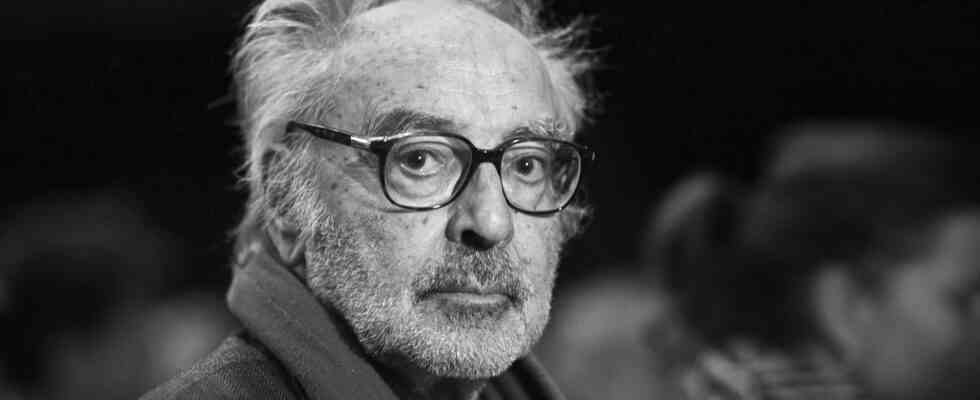obituary
Status: 09/13/2022 12:29 p.m
He was revolutionary, provocative – and never out to please. With Jean-Luc Godard, the film world has lost one of its most innovative and influential directors.
It was one of Jean-Luc Godard’s last public appearances: at the press conference for his film “Le livre d’image”, which premiered at the Cannes Film Festival in 2018, the French director made his cell phone call from his living room in Switzerland tune in Typically Godard with black horn-rimmed glasses and a cigar in his mouth, he sat in a wing chair.
Experienced film journalists were completely over the moon: “Bonjour Monsieur Godard, I’ve been waiting for this moment for our little conversation for 20 years. I learned French because of you, I wanted to understand your films in the original,” it said. Or: “It’s an honor to speak to a living legend.”
“Show that everything is allowed”
For years, Godard had cultivated his image as a media-shy recluse, not even appearing in Hollywood in person when the Academy awarded him an honorary Oscar in 2010. The Oscar means nothing to him, he said in an interview with the Neue Züricher Zeitung at the time. The French director was honored anyway.
The French actor Vincent Cassel found the right words at the time: “He renewed the film industry from the ground up,” he said of the director. “A groundbreaking achievement. He revolutionized cinema with the Nouvelle Vague.”
Godard’s first feature film, “Out of Breath” from 1960, with the then unknown actors Jean-Paul Belmondo and Jean Seberg catapulted the director to the very front. With quick cuts he created a new narrative rhythm. “This film breaks almost pathologically, almost systematically against all applicable rules,” Godard said. “It was really an inner need for me to show that everything is allowed.”
“You see real life everywhere”
At the beginning of his career, Godard worked obsessively. By the late 1960s he had made 15 films, some of them parallel. He worked with stars like Brigitte Bardot. His first wife, the Danish actress Anna Karina, became famous through her film “The Little Soldier”.
The later films, however, were no longer big box office hits. Too intellectual, too puzzling, too little mainstream, many of his works could only be seen in arthouse cinemas or at the major film festivals. That didn’t bother Godard, he had his very own view of what cinema should achieve:
Cinema is something that is unique, it should show what you can’t see anywhere else. You can see real life everywhere, for example on facebook.
Political provocations
Godard was never out to please. Politically, he provoked controversial statements about the excessive influence of the Jews in Hollywood, criticized the state of Israel and described it as a growing cancer in the Middle East. The director denied the accusation of anti-Semitism and merely referred to his pro-Palestinian commitment.
In 1968 Godard, with directors Truffaut and Polanski, caused the Cannes Film Festival to be canceled. Years later he berated his Hollywood colleagues Steven Spielberg and George Lucas:
Spielberg has far too high an opinion of his work and George Lucas far worse. He’s nothing more than a hobbyist.
Despite these sometimes radical and provocative statements, Godard was highly valued in the film world throughout his life. He, who had predicted the death of cinema for years, dedicated himself to the art of film until the end of his own life. Still 88 years old, the tireless Godard promised his admirers at the Cannes press conference that he would keep going: “As long as I can,” he said. “It’s not up to me, it’s up to my legs, my hands and my eyes.”
Obituary Jean Luc Godard
Sabine Wachs, ARD Paris, September 13, 2022 11:37 a.m

